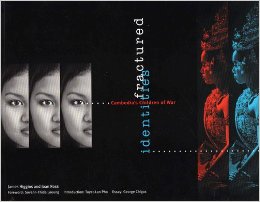Cambodia: 1979
“In early 1979, after living under the murderous Pol Pot regime for nearly four years, my family and I returned to our destroyed village, finding nothing but the ashes of our home and fallow fields where there had once been prosperous rice paddies. Life seemed hopeless, yet we were determined to try to plant the seeds that give hope for the future. Day by day, life seemed to be getting better. To earn money for food, my mother joined a group of men smuggling goods between Thailand and Cambodia, knowing my sister and I, though only fifteen and sixteen, could take care of my two younger sisters and three brothers while she was away. Then one day in 1979, my mother packed some of our family belongings and told the children to go to sleep early. The previous week, she had planned an escape route to the border camps with a Cambodian soldier who knew the safest way to Thailand by foot. In return, my mother gave him a gold necklace. They decided that my family would leave that following week.
“I don’t remember if I had the feeling of being in any great danger during our escape. Maybe I was unconsciously thinking of living in a peaceful Thailand. In any case, it wasn’t long before we reached Thai soil, where we were arrested by Thai soldiers in a village called Tapriya. I remember very clearly what my mother said to these soldiers who, perhaps rightly, did not want us to stay in their country: ‘You can kill me right now if you want, but don’t tell me to go back to Cambodia.’ After pleading with them again and again, the soldiers finally pointed their bayonets, directing us to a nearby army barracks. Fortunately, the soldiers treated us well, and the next day we went to our first camp, the Sakaeo Refugee Camp. From there we would go to Mairut Camp. My family and I were in different camps in Thailand according to our changing refugee status. This was when I learned the word ‘refugee’ (chun pia kluen) for the first time. My instincts told me that we had left Cambodia for good. Yet I never asked my mother why we had left our country. And she never explained to any of her children why we had to leave.” . . . .
—Sovann-Thida Loeung, from the Foreword to Fractured Identities: Cambodia’s Children of War by James Higgins and Joan Ross, with contributions by Tuyet-Lan Pho and George Chigas (Loom Press, 1997). This book, unfortunately, is out of print, but there is a plan to make a digital version available.

thanks Paul for posting this – it’s been a long time since reading Thida’s words but they still resonate…